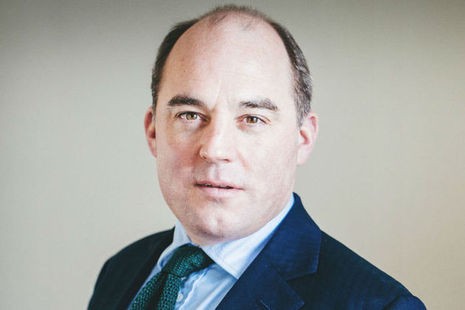By Ben Kerrigan-
Defence Secretary Ben Wallace is on a hastily-arranged visit to Washington to talk with his counterpart and White House officials about “shared security concerns” including the potential escalation of the Ukraine and Russia.
The quietly arranged last-minute nature of the trip and a comment by a second defence minister, James Heappey – who said the conversations that Mr Wallace would be having on Tuesday were “beyond belief” – suggested particularly sensitive and serious issues would be discussed.
alarm about the sudden nature of the trip was underlined by the fact the defence secretary had been due to appear before a committee of MPs in London to discuss the UK, US and NATO on Tuesday but had to cancel.
The possibility of Russia using nuclear weapons in Ukraine featured at a meeting of NATO defence ministers in Brussels last week. Mr Wallace and Lloyd Austin, the US defence secretary, both attended and held a bilateral meeting there as well.
NATO allies including the Uk and the US are closely watching Russia’s war in Ukraine amid heightened concerns that President Vladimir Putin may escalate his attacks even further, possibly even resorting to a nuclear strike as his forces lose ground to western-armed Ukrainian troops. Putin recently threatened to use nuclear weapons, adding that he was not bluffing.
The UK defence source declined to offer any specific detail on the content of Mr Wallace’s trip other than to say: “The defence secretary is in Washington DC to discuss shared security concerns, including Ukraine.
Brigadier General Patrick Ryder, the US Pentagon press secretary, offered a similar description: “He’s here today to discuss the Ukraine situation and the US and UK joint efforts to support Ukraine, as well as to, again, reaffirm the transatlantic ties and co-operation that our two countries share when it comes to issues like Russia.”
Mr Heappey gave a sense that the discussions were particularly grave as he responded to questions on the UK political crisis during an interview on Tuesday with Kay Burley on Sky News.
“We here in the Ministry of Defence are doing a good job of keeping our nation safe at a time of incredible global insecurity,” he said.
“My boss, Ben Wallace, is in Washington this morning having the sort of conversations that… beyond belief really the fact we are a time when these sorts of conversations are necessary.”
“There’s urgency because civilians are being targeted in a new way and so we have to respond to that, and our response has to be done at pace,” said Mr Cleverly.
“There are conversations which frankly you don’t want to have over the telephone.”
He added: “What we do is we discuss a full range of how we help the Ukrainians defend themselves – I’m not at them, I’m here rather than in the States – so I’m not going to speculate.”
The defence secretary had been due to appear before a committee of MPs in London to discuss the UK, US and NATO on Tuesday but had to cancel.
The possibility of Russia using nuclear weapons in Ukraine featured at a meeting of NATO defence ministers in Brussels last week. Mr Wallace and Lloyd Austin, the US defence secretary, both attended and held a bilateral meeting there as well.
in response to questions about whether NATO would consider a nuclear response should Russia use nuclear weapons in Ukraine, Jens Stoltenberg, the head of the alliance, last Thursday told reporters: “The fundamental purpose of NATO’s nuclear deterrent is to preserve peace and deter aggression and prevent coercion against NATO allies.
“The circumstances in which NATO might have to use nuclear weapons are extremely remote. Russia’s nuclear rhetoric is dangerous, reckless.
“And they know that if they use nuclear weapon against Ukraine, it will have severe consequences. And they also know that a nuclear war cannot be won and should never be fought.”
Only 24 hours ago, Wallace and one of his deputies, James Heappey indicated they are prepared to quit their jobs if Liz Truss does not honour her campaign pledge to spend 3% of GDP on defence by 2030.
The beleaguered prime minister’s commitment has appeared under threat following the surprise appointment of Jeremy Hunt as chancellor on Friday. Since then, Hunt has said no department would be immune from spending cuts.
But on Tuesday morning a defence source insisted that Wallace, one of the most highly regarded ministers in the government, “will hold the prime minister to the pledges made”, prompting fresh speculation he may quit if the pledge is not met.
The source, referring to the crisis in Ukraine, added that “current world events, and allies commitments show that defence is not a ‘discretionary’ spend but a priority”.
Wallace is working on the basis of the revised spending plans, in which budgets will increase from 2.1% of GDP to 2.5% by 2026 and 3% by the end of the decade to total an estimated £100bn a year.
NATO allies are this week conducing an annual exercise to test their ability to launch nuclear strikes. The training, hosted this year by Belgium, is taking place over the UK, the North Sea and Belgium.
Russia is also set to carry out annual nuclear drills. The US has said the Russians have not informed them of their nuclear drills, information they would normally expect to receive.

